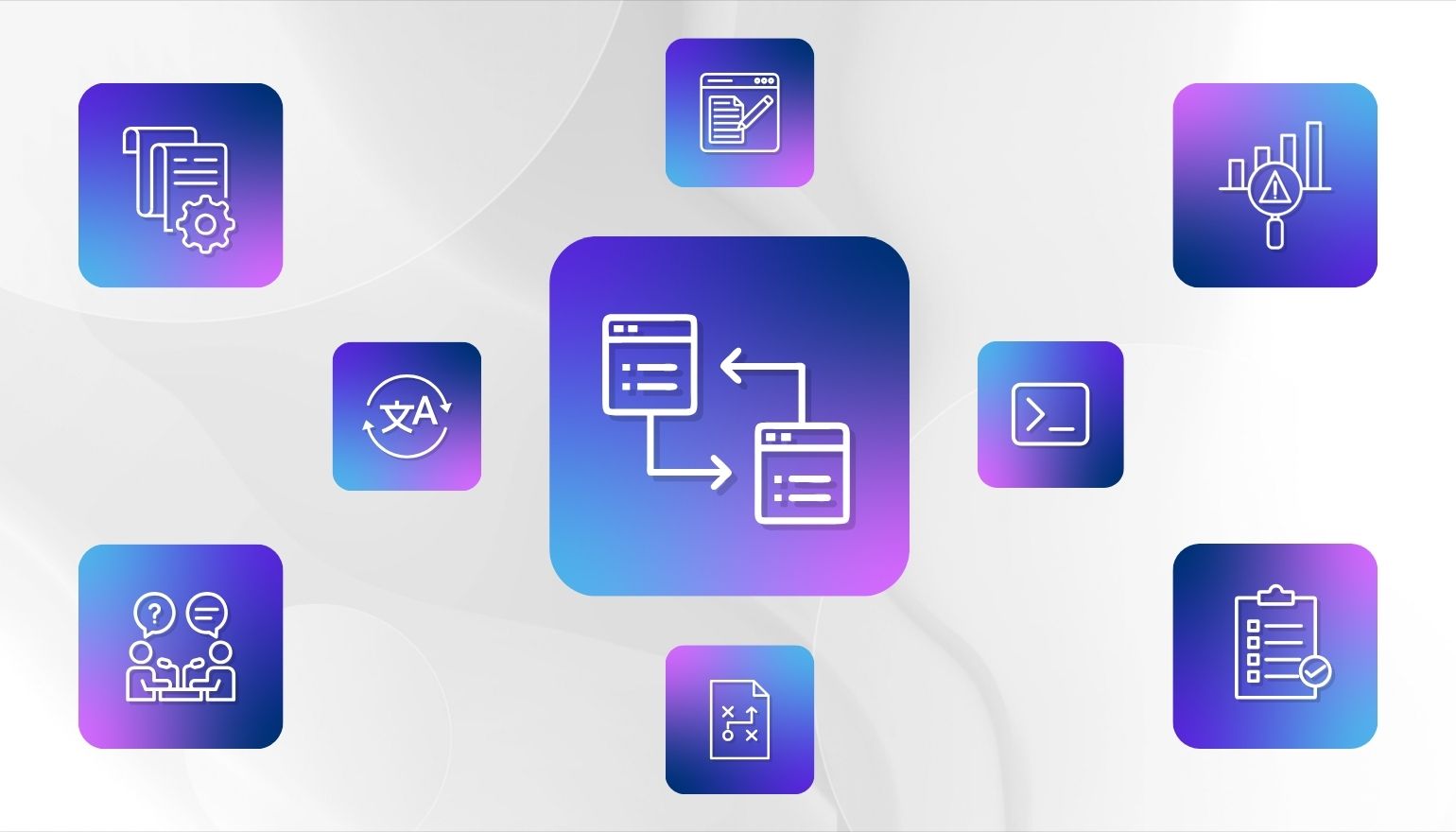
Blog
Top Trends from ILTA’s 2021 Technology Survey

Every year, the International Legal Technology Association (ILTA) releases its highly anticipated Technology Survey. Based on input from almost 500 law firms of all sizes and representing over 250,000 users, the survey results give us a glimpse into what’s changed and what we can expect over the next 12 months in the legal tech community.
In case you haven’t had a chance to read this robust 300+ page report, here is the executive summary and below are our top trends and takeaways.
1. M365 Use Continues to Grow
At first glance, we see that 53% of firms use Microsoft 365 Business as their primary office application software. That’s a majority, but not by much. Flip to the next question and 74% of firms report they expect M365 to be their primary office application within the next 12 months. That’s a lot of upgrades!
Any firm utilizing the power of M365 needs to consider potential risks and opportunities to further enhance lawyer and staff workflows. How can you enable secure collaboration while maintaining a single system of record for your matter, case, or project? Look for seamless integrations that help you meet people where they work, including Teams, and allow you to use Power Automate to create custom, code-free workflows.
That being said, the transition might not be easy. According to the survey, one of the top technology annoyances for firms was (and always is) user acceptance of change. But as firms continue to embrace change management methodologies and consider user and use cases in tech decisions, and with users quickly needing to adapt to hybrid work environments, we could see the acceptance of change improve in the years ahead.
2. The Cloud is Where It’s At
With 24% of firms reporting they are already mostly in the cloud and 41% having a “Cloud with every upgrade” philosophy, it’s no surprise that we’re seeing significant increases in planned implementations of cloud-based business solutions – from docketing to time and billing to human resources.
Interestingly, one of the biggest upswings will be those with cloud-based document management systems, which increased 12 percentage points to 49%.
At NetDocuments, we know the importance of the cloud in the legal industry, and we expect any remaining resistance to drain away slowly. We’ve been a cloud-first solution for over 20 years, and when the pandemic hit, we were ready to help attorneys and professional staff work from home. Our cloud DMS is prepared and waiting if your firm is transitioning to the cloud in 2022.
Learn how Ploum, a law firm in the Netherlands, transitioned to the cloud with NetDocuments.
3. Collaboration Tools are a Must
Almost every firm uses some collaboration tool, and of course the big winners during the pandemic have been Microsoft Teams and Zoom. Here’s how firms are using these tools:
- Video conferencing – Teams 69% | Zoom 85%
- Collaboration and messaging – Teams 61% | Zoom 42%
- Virtual client meetings or marketing events – Teams 36% | Zoom 80%
It seems Teams is used more internally, while people opt for Zoom when working with external or third parties.
Despite Teams and Zoom’s popularity, firms have had trouble developing strong information governance practices for collaboration or chat solutions. Too many firms aren’t addressing the risks associated with Teams and similar technology. For instance, 46% of firms admitted they don’t have Teams governance policies, and 38% of firms weren’t enforcing encryption on externally shared docs.
Another concern is data the firms could leverage but instead are letting go to waste. There’s a wealth of information hidden in when and how lawyers and staff use Teams or Zoom, and firms’ governance policies should enable them to collect and analyze that data.
4. Security Challenges Abound
Enhancing security continues to be a top concern, and firms reported their biggest security challenges were:
- 44% user behavior
- 35% social engineering/phishing
- 30% client security requirements/audits
- 25% malware/virus/zero day threats
- 19% user education and awareness
Remote work adds additional elements to the mix. The top security concerns related to working from home included remote device management, unsecured home Wi-Fi, and equipment provisioning and collection.
Firms addressed these concerns in several ways, including restricting lawyer and staff use of commercial file storage solutions like Dropbox, which weren’t a part of the firms’ approved tech stacks. Other security measures included multifactor authentication, security awareness training, and social engineering/phishing tests.
We foresee physical and cyber security continuing to be a top concern in the years to come, and that will extend to how firms choose technology vendors. The NetDocuments PROTECT solution offers enhanced security to address firms’ biggest concerns.
5. Industry-Wide App Consolidation
The legal tech industry continues to consolidate, but whether this benefits you remains to be seen. Just because an organization acquires other solutions and brings them under the same brand doesn’t speak to the ease of integration for your firm.
Consolidation is only helpful if organizations combine the technology to offer you one seamless application. That’s why NetDocuments is integrating AfterPattern, a recent acquisition, into the NetDocuments ecosystem. It’s essential that we continue to provide the look, feel, and experience you expect.
Our Favorite Trend: NetDocuments is Growing in Popularity
NetDocuments has been gaining ground with more year-over-year growth than our competitors since 2019, and in 2021, ILTA reported NetDocuments use rose to 20% of the market.
With 21% of firms with a DMS intending to upgrade in the next 12 months, and 19% of firms upgrading with plans to switch to the cloud, we’re eager to see the trend to NetDocuments continue to rise!
When No One Can Tell You’re Working Remotely, That’s Work Inspired.
Overall, the ILTA 2021 Technology Survey results confirm that there’s a significant shift to the cloud and enabling collaborative, efficient work from anywhere. Whether you’re trying to maximize your investment in M365, take a cloud-first approach to document management, or integrate Teams into your system of record and information governance plans, NetDocuments is the right partner to help you develop inspired solutions.
Learn more about NetDocuments and finding the right DMS for your firm.
More from the blog
-

- Blog
Ready-to-Go AI Apps for Legal Use Cases Available Now in the New ndMAX Studio
Legal professionals are looking for smarter, faster, secure ways to harness…
-

- Blog
AI-Driven Legal Tech Trends for 2025
With 79% of law firm professionals now incorporating AI tools into…
-

- Blog
Convincing Corporate IT That Legal Really Is Different: Making the Case for Corporate Legal Department Software
Explore the unique challenges legal operations leaders face in advocating for…
-

- Blog
The Digital Shift: Embracing AI for Legal Documents
The legal industry is facing a new era of transformation, driven…
netdocuments


